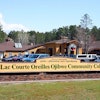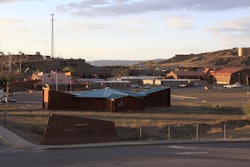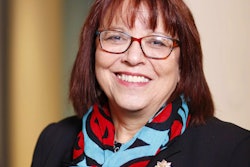My immediate reaction to U.S. Sen. Barack Obama’s election as the 44th president of the United States was to promptly follow his admonition — turn off the television and read with my daughter.
Make no mistake, this is a child whose idea of fun is solving math problems. However, while I watched Obama’s historic election unfold, I felt my dreams for her didn’t soar as high as they could, that I should be doing more. The Disney Channel had to go.
President-elect Obama’s message should strike a chord with anyone concerned about their future and our country’s future as a world leader. The government can do many things, more for sure, to help increase the chances of today’s young people becoming tomorrow’s great leaders. Improve financial aid and student loan programs, for example. We, as individuals, have to do more too – starting with the television and reading.
For now, the stage is set for parents, teachers, mentors and other volunteers to step it up and help minority children benefit from the inspiration generated by the election of the nation’s first Black president.
Obama’s election “will fill [Black children] with pride. There’s an enormous psychological effect,” says Dr. Alvin F. Poussaint, director of the Media Center of the Judge Baker Children’s Center in Boston and a professor of psychiatry at Harvard Medical School.
“If you wake up in the morning, you’re a two-year-old kid, the president is on TV and the president is a Black man, it begins to shape their image of the world and the image inside of what they think they can accomplish, and increases their own feelings of worth. ‘I am somebody. The president, this man, is running the country. I can run something. I can be in charge. I can get good grades.’ That will be an ingredient of their psyche.”
The same can be said for all children of color, especially Native Americans. President-elect Obama gets it, we think, and has a deeper understanding of Native issues, needs and concerns. He knows “sovereignty” means more than simply “you’re sovereign,” as President Bush put it during a 2004 political forum.
For sure that’s good news to the ears of the people featured in our issue this month. Our annual American Indian Heritage edition provides a timely glimpse into how Native Americans seek to transform their communities through self-reliance and higher education.
In “A Steward of American Indian Education,” David Gipp, a longtime advocate of tribal colleges, talks more about his philosophy of self-sufficiency and the role of tribal colleges to bring that about. In “Changing Roles In Indian Country,” Diverse contributing editor Mary Annette Pember reports on the increasing number of Native women taking highly visible leadership roles. The leaders interviewed for this story, too, have a sense of community responsibility and view education as the key to fulfilling dreams.
Poussaint warns that the nation’s impending economic woes have the potential to overwhelm the psychological boost offered by an Obama presidency. President-elect Obama said as much on election night when he reminded us the recovery will be hard, urged us to be realistic and measured in our expectations and reminded us we will have to help turn the ship around.
We can start with little steps. Turning off the television may not be a meaningful tip to you, a community of academics, but we all should find ways to help move the needle for minority children a little further.
© Copyright 2005 by DiverseEducation.com


















